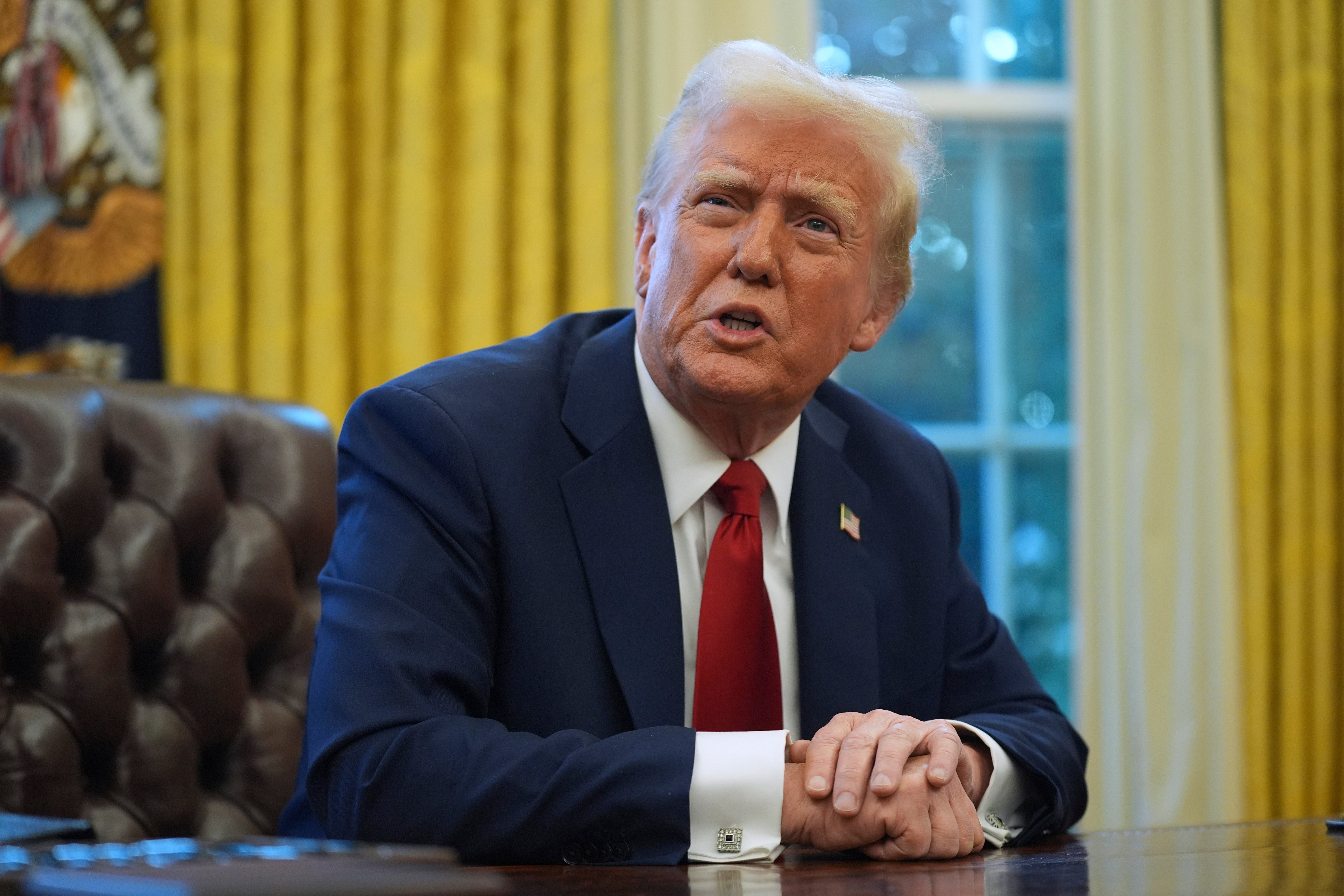Your support helps us to tell the story
From reproductive rights to climate change to Big Tech, The Independent is on the ground when the story is developing. Whether it’s investigating the financials of Elon Musk’s pro-Trump PAC or producing our latest documentary, ‘The A Word’, which shines a light on the American women fighting for reproductive rights, we know how important it is to parse out the facts from the messaging.
At such a critical moment in US history, we need reporters on the ground. Your donation allows us to keep sending journalists to speak to both sides of the story.
The Independent is trusted by Americans across the entire political spectrum. And unlike many other quality news outlets, we choose not to lock Americans out of our reporting and analysis with paywalls. We believe quality journalism should be available to everyone, paid for by those who can afford it.
Your support makes all the difference.
Mexico and Canada both announced retaliatory tariffs against the U.S. after Donald Trump signed an order imposing sweeping levies against both nations.
Mexican president Claudia Sheinbaum and Canadian Prime Minister Justin Trudeau announced their decisions on Saturday, initiating what is likely to be an economic standoff with America and its two largest trading partners.
Earlier, Trump signed an order imposing 25 percent tariffs on all goods from Canada and Mexico starting on Tuesday, with the exception of Canadian energy products, which will be subject to a 10 percent duty.
In response, Sheinbaum said she was instructing her Secretary of the Economy to implement a “Plan B,” which includes “tariff and non-tariff measures in defense of Mexico’s interests.”
Hours later Trudeau announced that Canada would impose 25 percent tariffs on $106.5 billion of U.S. goods in response to Trump’s tariffs.
In a lengthy statement posted in Spanish on X, Sheinbaum stressed that she did not desire conflict with the U.S. but hit back against suggestions of criminal alliances with her government.
“We categorically reject the White House’s slander against the Mexican government of having alliances with criminal organizations, as well as any intention of intervention in our territory,” she wrote. “Mexico does not want confrontation. We start from collaboration between neighboring countries.”
Trump has said that the tariffs against Mexico were due to the country’s failure to stop fentanyl getting into the United States as well as what he describes as uncontrolled migration.

In her post, Sheinbaum touted her government’s record since she took office in October, seizing 20 million doses of the deadly synthetic opioid, in addition to detaining over 10,0000 individuals tied to drug trafficking.
“Mexico not only does not want fentanyl to reach the United States, but anywhere. Therefore, if the United States wants to combat criminal groups that traffic drugs and generate violence, we must work together in an integrated manner,” she said.
In a press conference held on Saturday night, Trudeau said that the coming weeks would “be difficult” for both sides but that his “job” was to stand up for his citizens.
“We’re not looking to escalate, but we will stand up for Canada, for Canadians, for Canadian jobs,” he said. “We will also continue to do more with the United States… to grow our economies… we can and will do things together and that is my focus.”
According to the PM, tariffs on $20.6 billion worth of U.S. goods would take effect from Tuesday and the remainder in 21 days.
Trudeau warned that the tariffs would hurt the United States, a long-time ally. He encouraged Canadians to buy Canadian products and vacation at home rather than in the U.S. He said some non-tariff measures, including those relating to critical minerals, energy procurement and other partnerships are being looked at.



